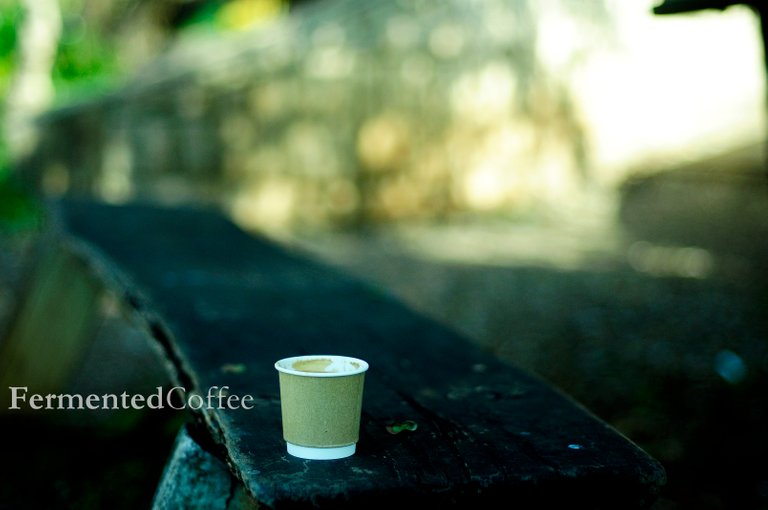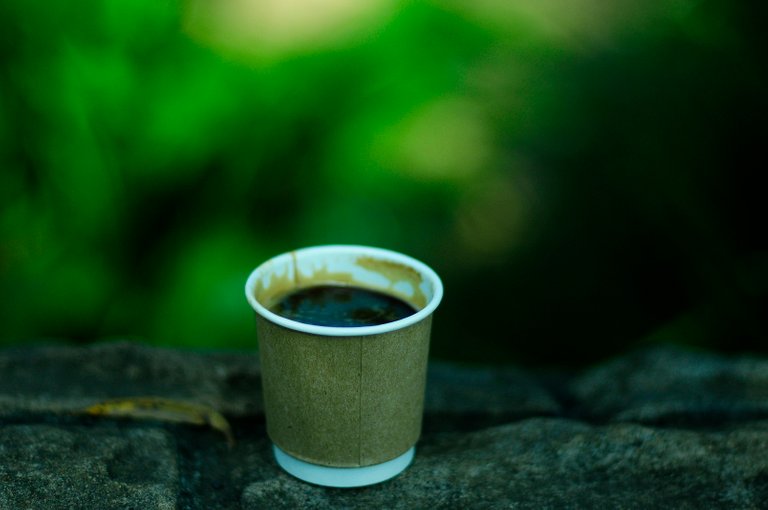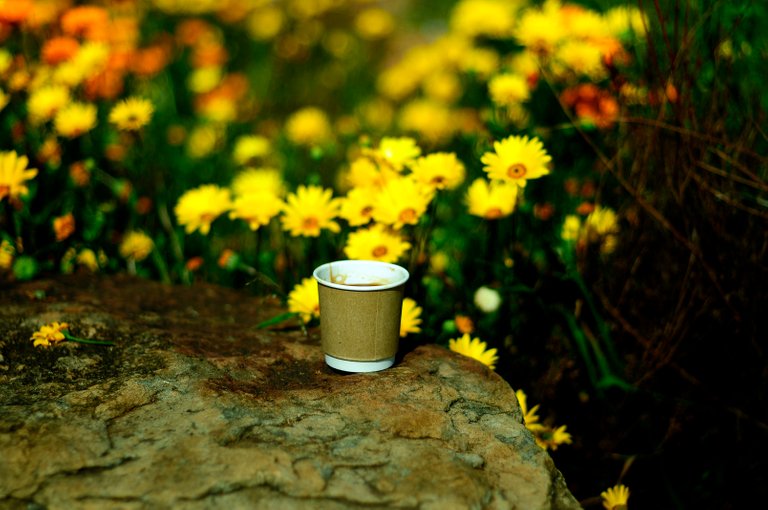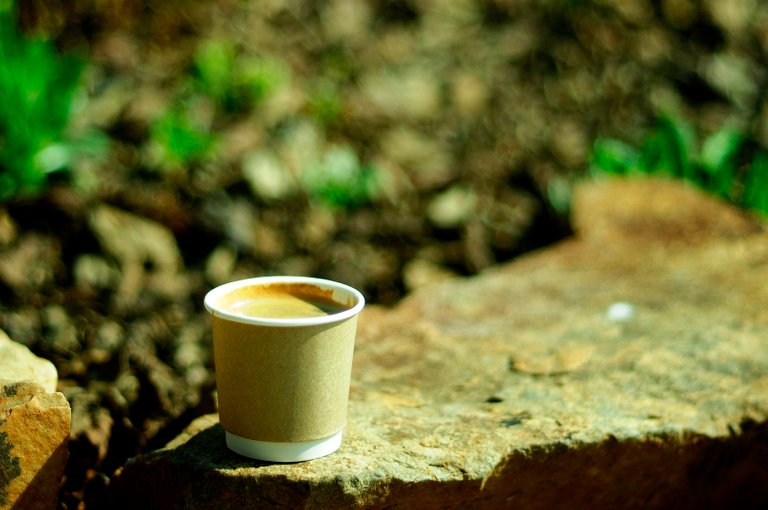
For some, coffee is a daily ritual. From grinding the coffee, to smelling the beans, to tasting the crema and the familiar bitter taste. Yet, few spend the time thinking about the practical wisdom we can find in that small cup of coffee. A familiar angle or approach for my posts, I focus on the fermentation part of coffee and philosophize about how we can use this in our everyday life. In short, the fermentation process of coffee beans, before the drying stage, has various philosophical implications or points of appeal. I take these "biological" factors and fermentation processes as so-called points of departure from which I philosophize.
Biology, Fermentation, and Philosophy: Fermenting Coffee Beans
In a recent research article, Mesfin Haile and Won Hee Kang write that:
In short, the fermentation of coffee beans has two benefits: it shortens the drying time, and it potentially prohibits the growth of mold. Or, in other words, if coffee beans are not properly fermented, the potential for mold growth escalates and the drying times lengthen. This is obviously detrimental to the final product we enjoy on a daily basis. Without the fermentation of coffee beans, we will not have coffee.
An amazing fact is that this fermentation process happens as if it were from nothing. Or, it just happens. If you leave fruit outside it will, under the right conditions, ferment. A long time ago, the Greeks and Romans thought that fermentation was something magical. The Latin word for fermentation is fervere which means to boil or brew. This is, however, linked to fermented drinks; whilst fermentation CO2 gas is produced and the process can sometimes look like a boiling pot. Coffee is obviously not a fermented drink but comes from a fermented product. But the ancients did not understand fermentation as we do now. To them, it was something divine, magical, and spiritual.

Few know that coffee beans are fermented. But as mentioned above, the fermentation process is important. I now want to philosophize from these two important factors. In other words, I use these two factors as points of departure.
Coffee and Philosophy
Fermenting coffee fruits, as mentioned, will help with the drying process but it will also stave off the growth of mold.
Philosophy, or fermenting your mind, can help in similar ways.
Take the second idea or factor, i.e., staving off the growth of mold. Fermentation in liquids is essentially utilizing certain strains that, you know, yield a better product. The goal is to get these strains of yeast and bacteria to take over the unwanted bacteria and yeast. Yeasts and bacteria are everywhere and always present. One can never work in a "clean" area except in laboratories and so on. The primary goal is to provide an environment with the right conditions so that your strain of yeast and bacteria can take over.
Philosophy can work in a similar way. By reading and studying certain works, you provide your mind with the correct environment with the right conditions so that bad bacteria and yeast, i.e., bad philosophies or influences, cannot take over. In our modern times, so many people fall victim to fallacious thinking and bad reasoning due to their minds not having undergone good fermentation. Bad or unwanted bacteria or mold took over.

The first factor, that of drying out faster, can also be linked to philosophy. In my previous Fermentation and Philosophy post, I wrote about getting rid of what is not needed. In the fermenting part of the coffee bean, unwanted sugars and carbohydrates and mucilages are transformed and easily discarded if needed.
Again philosophy can work in similar ways. The South African writer and poet, N.P. van Wyk Louw, wrote in an essay on philosophy that philosophy is not the same as theoretical knowledge. In theoretical knowledge, one can acquire ever more knowledge, similar to grain, one can build ever bigger sheds to store more and more grain. But philosophy is different. It is rather akin to a skill one learns and never stops learning. It is not that knowledge grows ever bigger and more, but that one gets better and better. It is akin to what Aristotle called phronesis or practical wisdom.
To bring it all back to the humble small cup of coffee, one can see dark liquid the following: philosophy, similar to fermentation, helps us strengthen our minds so that unwanted bacteria or yeast or mold does not grow and spread, and it helps us get rid of unwanted products by helping us get better and better. It is also a wonder that coffee helps us think better!

Postscriptum, or To Sum Up
A small and humble cup of coffee can teach us a lot. Fermentation, although it seems mysterious and as if it just happens, is a process we humans will not be able to live without. From alcohol to coffee, we rely on these seemingly magical processes for our everyday needs. Similarly, we can see philosophy in this light to help us foster a better mind. Fermenting our minds will help us get rid of philosophies and thoughts that might harm us. It can also help us live a better life by fostering practical wisdom.
All of the photographs are my own, taken with my Nikon D300 camera. All of the musings are my own, unless stated otherwise or linked to the source. Happy philosophizing and stay safe.
Your content has been voted as a part of Encouragement program. Keep up the good work!
Use Ecency daily to boost your growth on platform!
Support Ecency
Vote for new Proposal
Delegate HP and earn more
The rewards earned on this comment will go directly to the people( @steemadi ) sharing the post on Twitter as long as they are registered with @poshtoken. Sign up at https://hiveposh.com.
I love coffee and fermentation. Though you are talking about the fermentation of the beans have you ever tried fermenting coffee itself using a scoby from kombucha? It's soo good... a very good drink to sip on while fermenting our thoughts to get rid of the ones we don't need!
Thank you so much for the visit!
I need to try this. I can only imagine how nice that is! Do you have a method/recipe you like to follow and which you'd willingly share? Thanks!
Here is an article I wrote a few years ago on how to make coffee kombucha. I hope you like it as much as we do.
https://hive.blog/hive-120078/@amy-goodrich/how-to-make-coffee-kombucha#@naturalmedicine/re-amy-goodrich-qm9edt
Oh thank you so much! I am going there right now! Thanks again.